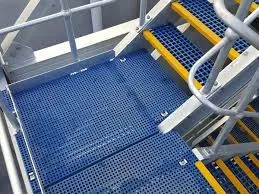
-
 Afrikaans
Afrikaans -
 Albanian
Albanian -
 Amharic
Amharic -
 Arabic
Arabic -
 Armenian
Armenian -
 Azerbaijani
Azerbaijani -
 Basque
Basque -
 Belarusian
Belarusian -
 Bengali
Bengali -
 Bosnian
Bosnian -
 Bulgarian
Bulgarian -
 Catalan
Catalan -
 Cebuano
Cebuano -
 China
China -
 China (Taiwan)
China (Taiwan) -
 Corsican
Corsican -
 Croatian
Croatian -
 Czech
Czech -
 Danish
Danish -
 Dutch
Dutch -
 English
English -
 Esperanto
Esperanto -
 Estonian
Estonian -
 Finnish
Finnish -
 French
French -
 Frisian
Frisian -
 Galician
Galician -
 Georgian
Georgian -
 German
German -
 Greek
Greek -
 Gujarati
Gujarati -
 Haitian Creole
Haitian Creole -
 hausa
hausa -
 hawaiian
hawaiian -
 Hebrew
Hebrew -
 Hindi
Hindi -
 Miao
Miao -
 Hungarian
Hungarian -
 Icelandic
Icelandic -
 igbo
igbo -
 Indonesian
Indonesian -
 irish
irish -
 Italian
Italian -
 Japanese
Japanese -
 Javanese
Javanese -
 Kannada
Kannada -
 kazakh
kazakh -
 Khmer
Khmer -
 Rwandese
Rwandese -
 Korean
Korean -
 Kurdish
Kurdish -
 Kyrgyz
Kyrgyz -
 Lao
Lao -
 Latin
Latin -
 Latvian
Latvian -
 Lithuanian
Lithuanian -
 Luxembourgish
Luxembourgish -
 Macedonian
Macedonian -
 Malgashi
Malgashi -
 Malay
Malay -
 Malayalam
Malayalam -
 Maltese
Maltese -
 Maori
Maori -
 Marathi
Marathi -
 Mongolian
Mongolian -
 Myanmar
Myanmar -
 Nepali
Nepali -
 Norwegian
Norwegian -
 Norwegian
Norwegian -
 Occitan
Occitan -
 Pashto
Pashto -
 Persian
Persian -
 Polish
Polish -
 Portuguese
Portuguese -
 Punjabi
Punjabi -
 Romanian
Romanian -
 Russian
Russian -
 Samoan
Samoan -
 Scottish Gaelic
Scottish Gaelic -
 Serbian
Serbian -
 Sesotho
Sesotho -
 Shona
Shona -
 Sindhi
Sindhi -
 Sinhala
Sinhala -
 Slovak
Slovak -
 Slovenian
Slovenian -
 Somali
Somali -
 Spanish
Spanish -
 Sundanese
Sundanese -
 Swahili
Swahili -
 Swedish
Swedish -
 Tagalog
Tagalog -
 Tajik
Tajik -
 Tamil
Tamil -
 Tatar
Tatar -
 Telugu
Telugu -
 Thai
Thai -
 Turkish
Turkish -
 Turkmen
Turkmen -
 Ukrainian
Ukrainian -
 Urdu
Urdu -
 Uighur
Uighur -
 Uzbek
Uzbek -
 Vietnamese
Vietnamese -
 Welsh
Welsh -
 Bantu
Bantu -
 Yiddish
Yiddish -
 Yoruba
Yoruba -
 Zulu
Zulu
extension of a threaded rod how to properly extend a ...
How to Properly Extend a Threaded Rod A Comprehensive Guide
When it comes to construction, automotive repair, or various DIY projects, a threaded rod can be an invaluable component. These versatile fasteners are used to create tension, provide support, and connect different parts of an assembly. However, there are instances when the length of a threaded rod may need to be extended. Properly extending a threaded rod requires a systematic approach to ensure safety, durability, and functionality. Here’s a detailed guide on how to extend a threaded rod correctly.
Understanding Threaded Rods
Threaded rods are long, cylindrical pieces of metal that feature threads along their length. They are commonly made from materials like steel, stainless steel, or brass, with diameters ranging from a few millimeters to several centimeters. Their primary purpose is to act as a fastening element, allowing for the connection of multiple components.
Reasons to Extend a Threaded Rod
There are a variety of reasons you might want to extend a threaded rod - Increased Length To reach a specific distance or to fit a part that is spaced farther apart than usual. - Customization To accommodate new project specifications or design changes. - Repair To replace a broken or worn section of a threaded rod without discarding the entire component.
Tools and Materials Needed
Before starting the process, gather the following tools and materials - Additional threaded rod of the same diameter and thread type. - A coupling nut. - Lockwashers or flat washers (if necessary). - A wrench or socket set. - Cutting tools (if you need to resize the rods). - Thread adhesive (optional for added security).
Step-by-Step Process to Extend a Threaded Rod
1. Determine Length Requirements
Measure the distance that you need the extended threaded rod to cover. This will help you calculate how much of the additional rod you will need.
2. Purchase the Correct Materials
Ensure that the new threaded rod you are using matches the diameter and thread pitch of the existing rod. This is crucial for compatibility. If unsure, you can measure the threads with a thread gauge.
extension of a threaded rod how to properly extend a ...

Cut the new threaded rod to the required length using a hacksaw or a pipe cutter. Ensure your cuts are straight and clean to facilitate better joining.
4. Use a Coupling Nut
A coupling nut is an ideal component for extending a threaded rod. It serves as a connector that can securely join two rods together - Thread the existing rod into one end of the coupling nut. - Then, insert the newly cut rod into the other end.
Ensure that the coupling nut is screw-tightened to both rods for strength and stability.
5. Secure with Lockwashers or Washers
Depending on the application, consider using lockwashers or flat washers on either end to distribute the load and prevent loosening over time. This is particularly important in dynamic or high-stress environments.
6. Tighten Everything Properly
Using a wrench or a socket set, tighten both ends until secure. Avoid over-tightening, as this can strip the threads or damage the rods. Check the connection for stability once you've finished.
7. Consider Thread Adhesive
For added security, especially in high-vibration applications, you might consider applying a thread adhesive to the couplings. This can help maintain the integrity of the connection over time.
8. Testing the Extension
Before putting the extended threaded rod into significant use, carry out a test to ensure it holds properly under expected loads. Monitor for any signs of stress or failure.
Conclusion
Extending a threaded rod is a straightforward process that can significantly enhance your project’s functionality. By following the outlined steps and using the right materials, you can securely extend a threaded rod, ensuring it serves its purpose effectively. Always prioritize safety and double-check measurements and connections to enjoy a reliable and efficient assembly.









